


Framed or unframed, desk size to sofa size, printed by us in Arizona and Alabama since 2007. Explore now.
Shorpy is funded by you. Patreon contributors get an ad-free experience.
Learn more.

- Freeze Frame
- Texas Flyer wanted
- Just a Year Too Soon
- WWII -- Replacing men with women at the railroad crossing.
- Yes, Icing
- You kids drive me nuts!
- NOT An Easy Job
- I wonder
- Just add window boxes
- Icing Platform?
- Indiana Harbor Belt abides
- Freezing haze
- Corrections (for those who care)
- C&NW at Nelson
- Fallen Flags
- A dangerous job made worse
- Water Stop
- Passenger trains have right of way over freights?
- Coal
- Never ceases to amaze me.
- Still chuggin' (in model form)
- Great shot
- Westerly Breeze
- For the men, a trapeze
- Tickled
- Sense of loneliness ...
- 2 cents
- Charm City
- What an Outrage
- Brighton Park
Print Emporium
Bombs and Butter: 1942
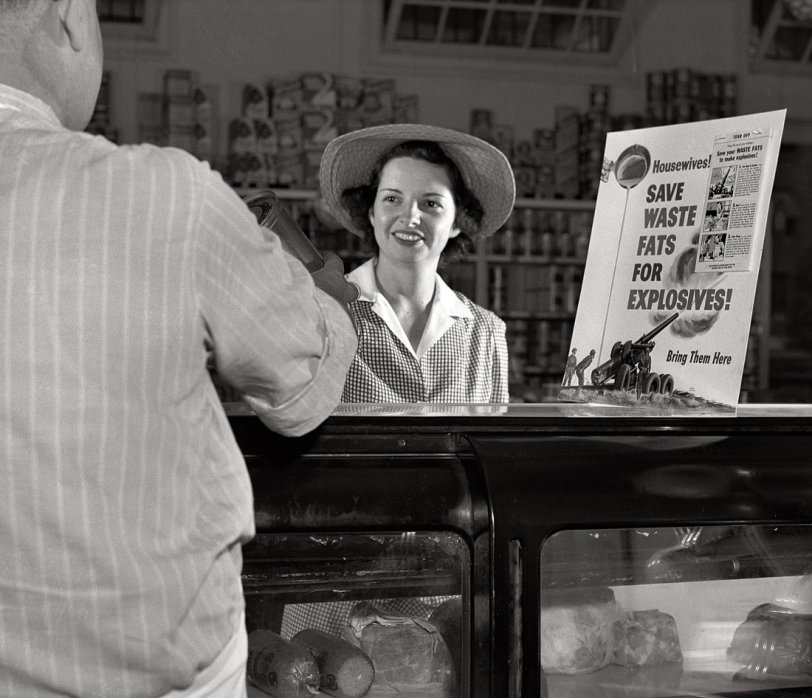
June 1942. "Why greases must be saved. Introducing two good soldiers of the home front: the housewife who saves her waste household fats and greases, and the butcher to whom she gives this salvaged fat after she has collected at least one pound, strained it through a metal sieve and poured it into a large, wide-mouthed can. Butchers displaying the poster shown here will pay househoulders for the fat, and sell it to rendering plants thereby turning this valuable material into industrial channels where it will be processed into ammunition for America's fighting men." Medium format negative by Ann Rosener for the OWI. View full size.
Not just munitions
I listened to some WW II era Amos and Andy radio shows. At the end of one, Harlow Wilcox delivers a Public Service Announcement that basically guilts housewives into saving their fats by describing the conditions at the front. And he quite clearly says the fats are used to make ammunition and sulfa drugs. Sulfa drugs were the antibiotic of choice before penicillin. Is there a way to upload an mp3 file of the PSA?
Rubber goes to war
Rubber was the only major commodity that was really touch-and-go -- it wasn't until the synthetic rubber plants came online in 1943 that the pressure was relieved. This is why so much effort was placed on rubber conservation: gasoline rationing, 35-mph speed limit, no tires manufactured for civilian use, no rubber in girdles, etc.
Most of the other famous wartime scrap drives served largely as morale boosters. Some (glycerin) had negligible impact, others (silk) were displaced by technology (nylon). Aluminum became the poster child for misguided enthusiasm -- airplanes could be made only from virgin aluminum.
Ultimately, the war was won by industrial policy and resource allocation.
Fried
This is a trick I learned from my mom. I keep two empty tin cans in the freezer. One I use to pour off any oil or fat that isn't bacon fat. It freezes hard and when it's full I can toss it in the trash without much of a mess. And it keeps it out of my drains.
The other can is for bacon drippings which like H.M.E. and Happy Cook above point out is magnificent for flavoring all sorts of foods or even using as pan lubricant for sautes, simmers, or sweats. Trust me that onions caramelized with bacon fat are much, much more delicious.
Using bacon drippings is the first step down the path to using lard (quite possibly the best fat to use for any sort of frying or pastry application).
On the Contrary
I was born in 1948, so I didn't live through World War II. But I've always heard that the Victory Gardens, the rubber and scrap metal drives and the food rationing (sugar, meat, butter, etc.) made a huge difference in the eventual outcome of the war. Anybody know where I could read more about this?
Sense of Participation
I'm not sure what effect the scrap drives etc. had on the war effort, but it certainly was a way the average person to feel involved and you can't underestimate that. I don't know where I saw it but for some reason the figure of 25% of adult males in a specific age range being in the military sticks with me. The woman in the photo's husband, brother, father, or boyfriend (or all of the above for that matter) were probably in uniform. Collecting scrap or filling cans with bacon fat were all very real ways of supporting the troops which in turn was supporting your loved one in uniform.
Added to that was the very real sense that America's way of life was at stake in a way that it really hasn't been since 1945. Pearl Harbor had a unifying effect and the German and Italian declarations of war added to that.
Our generation
In response to Anonymous Tipster and Patriotism: I don't know what generation you are part of, but regular young people are being asked to serve in many ways even today. Participation in programs like AmeriCorps and Teach for America is strong, and there are plans in Congress to grant tuition waivers to students who participate in national service projects. I believe that if my generation was asked to do something like this for our country, we surely would.
Also, being asked to sacrifice or work by the U.S. government would likely increase public awareness that there is a war going on-- as of now, many people go about their lives without having to acknowledge it. I've read that many of the service projects participated in during WWII (scrap metal drives, etc) were not really useful except to make the general public feel involved!
Oink to Soap
For those who want to re-use their bacon drippings without either making explosives or making their arteries explode, this site has a couple of recipes for using it to make soap:
Tasty, tasty grease.
Bacon grease is great for flavoring beans and pan-bread. You can use it in corn bread or anything that you think needs a bit of extra artery-clogging oomph. Anything that calls for shortening/oil . . . oy, my blood feels sluggish.
I had to learn how to cook all over again when I went veg. And even though I'm once again happily chowing down on animal parts, I have yet to make the leap to cooking with bacon grease again.
I felt guilty this morning...
...after drizzling a bit of bacon grease on the dogs' food, the rest of it went down the garbage disposal with lots of hot water and Dawn dish detergent. (I actually fished around in the trash, but couldn't find a can in which to save these drippings.)
I'm not much of a cook and have no idea what I would *do* with bacon drippings, but the thought of Shorpy's lovely patriot returning her sieved fat to the butcher pricked my conscience!
(Oh, and gooberpea made me chuckle with his play on words..."rendering" unto Uncle Sam!)
Patriotism
It amazes me that a country could band together and be so selfless the way that generation did. It seems doubtful that the young people in my generation could ever be bothered to out forth any effort to help people in their own communities, let alone our citizens fighting overseas.
Boom
Via the University of Illinois
As part of the war effort, housewives were encouraged to save all used cooking fats and turn them in to their local butcher. The fact that extra ration stamps for food could be earned by doing this was a great incentive. These fats were then used to make explosives. One pound of fat contained enough glycerin to make nearly a pound of explosives. Glycerin is used in the manufacture of nitroglycerin, dynamite, blasting gelatin, and smokeless powders (Cordite and Ballestite). Until 1948 all glycerin was made primarily from animal fats by hydrolyzing the fat with an alkali, to form a soap and glycerol.
Pew pew pew pew, Boom! (Kid battle sounds)
jnc
Render Unto Uncle Sam
My grandmother is 93 and still saves all of her used grease and cooking oils. I have no idea what she does with it now - I suspect there are many coffee cans full of the gunk under her kitchen cabinets - but she told me once when I was a child that she used to give it to "the army." In my childhood mind's eye I saw infantry slathered with bacon grease. Now I understand.
Goober Pea
Huh?
I'm sorry. I don't quite understand the role grease and fat plays in the manufacturing of ammo.
Help Truckers - Save your fat!
Pretty soon we will be having to do the same rationing to help out big rigs and their diesel woes.
Burgers to Bombs
These fats were turned into glycerine, as in nitroglycerine, for munitions.





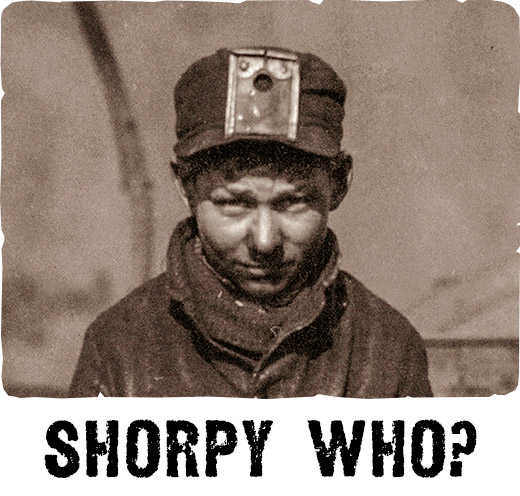
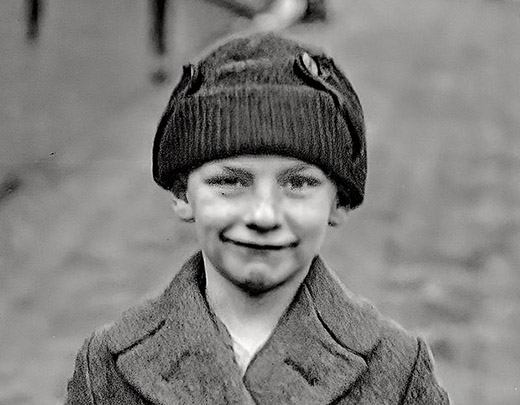
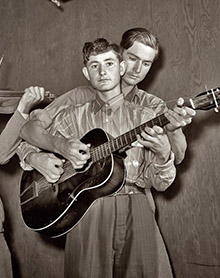
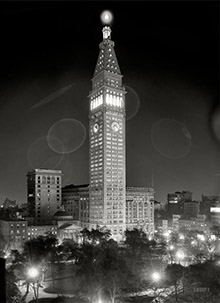
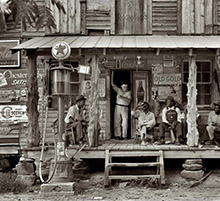
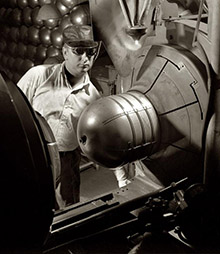
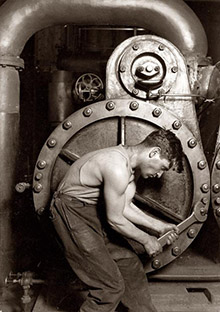

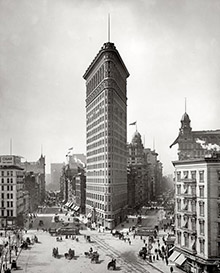



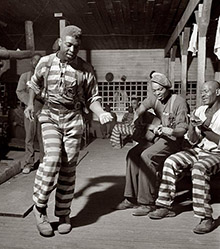

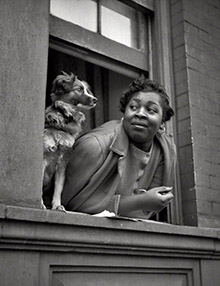

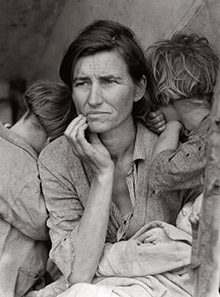

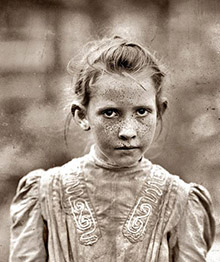
On Shorpy:
Today’s Top 5